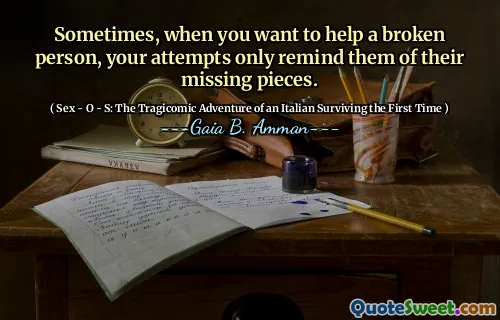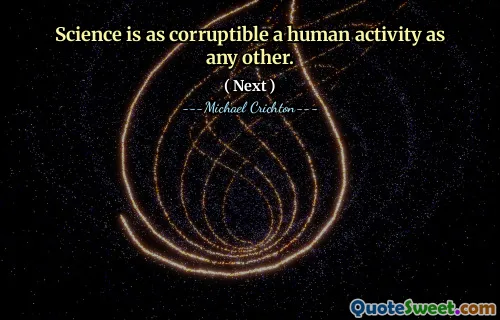
Sometimes, when you want to help a broken person, your attempts only remind them of their missing pieces.
In the intricate dance of human connection, we often find ourselves driven by a genuine desire to help those who are hurting or broken. However, the act of trying to heal someone can sometimes have unintended consequences. When we attempt to support or comfort someone whose internal pain or trauma is profound, our efforts may inadvertently highlight their vulnerabilities or parts of themselves they are struggling to conceal or confront. This evokes a complex emotional landscape where compassion must be tempered with sensitivity. Helping a broken person is akin to walking a tightrope: too much intervention can remind them of what they desperately wish to forget, amplifying feelings of inadequacy, shame, or despair. It signifies a delicate balance—offering support without making the person feel exposed or reminded of their deficits. This quote underscores the importance of understanding and respecting personal boundaries and the nuanced nature of emotional healing. It encourages introspection on how our well-meaning actions can sometimes evoke feelings of inadequacy or reinforce a person's sense of incompleteness. The process of healing is deeply personal; each individual is at a different stage and has unique needs. Recognizing this can foster more empathetic approaches, emphasizing listening, patience, and understanding rather than just fixing or solving. The complexity of emotional wounds reminds us that sometimes quiet presence and genuine kindness matter more than efforts to 'fix'. Healing requires an environment of trust and compassion, where the person feels safe enough to confront their pain at their own pace.


